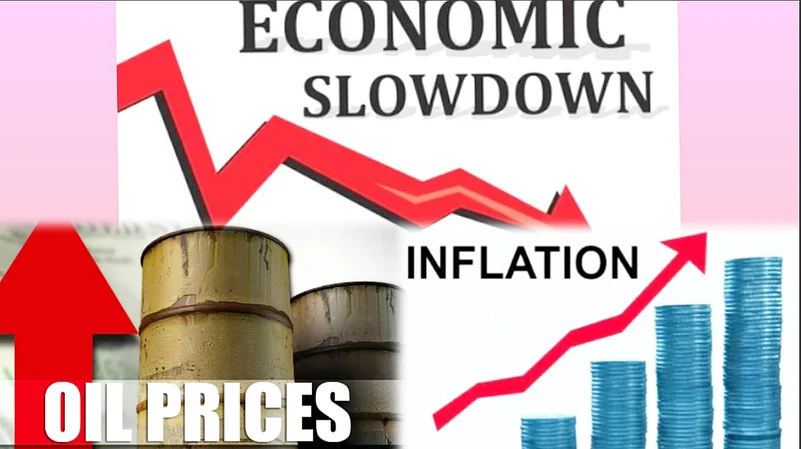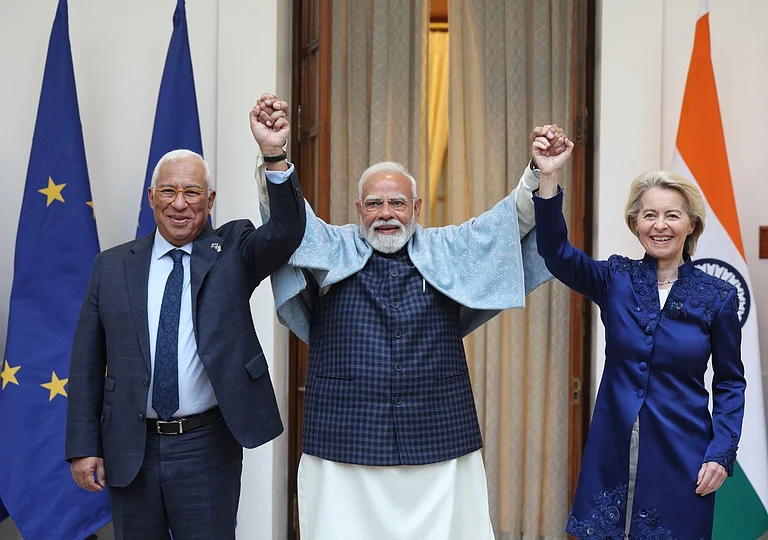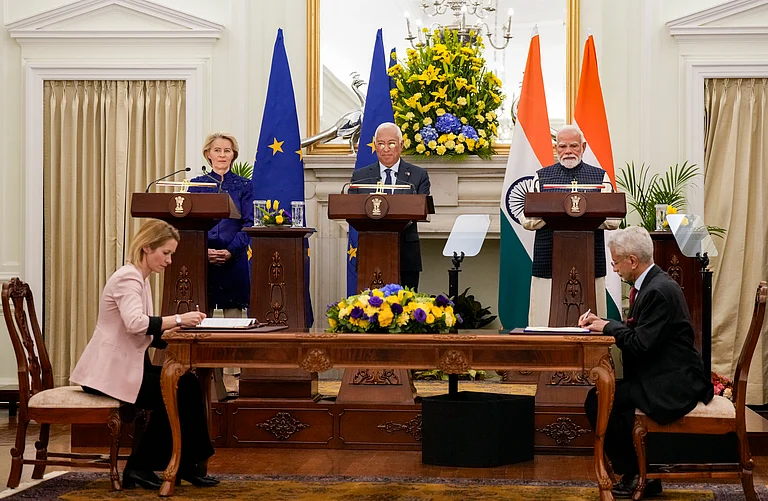Geopolitical Risks and Their Economic Repercussions: A Year of Uncertainty
Elections, political polarization, and conflicts—both internal and international—pose significant geopolitical risks that invariably impact the global economy and individual nations alike. As these issues intensify, they create a ripple effect that can destabilize markets, disrupt trade, and influence economic forecasts.
For individual countries, the impact may include economic slowdowns, increased uncertainty for businesses, and challenges in maintaining economic growth.
In a year marked by heightened geopolitical tensions, the urgency to manage these risks effectively has never been more critical. Governments and institutions must prioritize strengthening frameworks that ensure stability and resilience. This involves not only addressing immediate conflicts but also fostering diplomatic relations and economic policies that mitigate the adverse effects of political instability.

The ongoing war in Ukraine, the Israel-Hamas conflict, and Houthi missile attacks in the Red Sea The deepening rift between India and Canada Diplomatic & Economic Implications underscore how geopolitical events are shaping global economic performance in 2024. Additionally, elections in 64 countries this year are expected to impact the global economy by influencing trade policies and increasing uncertainty and political polarization.
Navigating Economic Performance Amid Geopolitical Tensions :
Geopolitics, encompassing political instability, conflicts, and geographical events, can impact the global economy both directly and indirectly. Financial markets are affected through capital controls, sanctions, and increased uncertainty, which can lead to higher risk premiums and asset price fluctuations. On the trade front, geopolitical tensions can disrupt trade flows and supply chains, affecting commodity prices and causing shortages of essential resources like oil and gas, which in turn impacts global industrial production.
Geopolitical tensions can lead to higher inflation, slower growth, and welfare losses. Internally, governments influence economies through fiscal policies, and rising populism can disrupt stability with short-term, unsustainable policies like protectionism and increased spending. Studies show that populist governments often result in lower long-term economic growth and can increase market volatility. Economic performance also impacts politics: strong economies typically benefit incumbents, while poor economic conditions can boost voter discontent and lead to political shifts, including the rise of populist parties.
Geopolitical Risk Indicators: How Measurement Shapes Our Understanding of Global Risks:
Measuring geopolitical risks is challenging but crucial. One method is the Geopolitical Risk Index (GPR), which tracks the frequency of negative geopolitical events reported in major newspapers (Forbes , Wang et al, 2023),. Higher GPR values indicate increased risk and potential for future adverse events.
Research Findings show that elevated GPR values are linked to:

Increased inflation and decreased economic activity
Higher oil prices
Reduced investment at firm and country levels
More volatile capital flows
Reduced private sector credit in emerging markets
Lower trade volumes

From the above Figure, we can clearly Make out that there is a high correlation that Indicates that :
Geopolitical risks align closely with global trends.
The index effectively reflects major historical events, such as the First Gulf War, the September 11 attacks, and Russia’s invasion of Ukraine, highlighting its sensitivity to significant geopolitical developments.
The index spiked with the renewed conflict between Israel and Hamas in October 2023. Although it has slightly decreased since then, it remains elevated, within the top 5% of historical levels.
Examining the Top 2024 Threats to the Global Economy in Today's World :
US Elections: Increasing polarization and declining trust in the political system could impact global stability.
Middle East Tensions: The Israel-Hamas conflict and Houthi attacks on Red Sea shipping could escalate into a larger regional war, disrupting oil supplies and global trade.
Russia-Ukraine Conflict: A potential partition of Ukraine and the strengthening of Russia’s military and economic position pose risks to global oil and food markets.
Diplomatic Fallout: The Growing Rift Between Canada and India : Recent disputes, such as accusations from Canada regarding India's involvement in the assassination of a Sikh separatist, have led to a significant diplomatic fallout, including the expulsion of diplomats and strained bilateral relations. The diplomatic relations could disrupt trade and investment flows between the two countries
AI and Protectionism: Unregulated AI, rising protectionism, and disruptions in critical mineral trade are significant concerns.
Global Economic Risks: Tight monetary policies, financial market vulnerabilities, and the potential for lower global GDP growth due to geopolitical tensions are increasing.
These factors contribute to heightened economic and geopolitical uncertainty.
How Political Risks and Elections Shape Economic Performance :
As we completed first half of the year, around 20 to 30 countries completed their election processes, including both national and regional elections.
However, the most anticipated elections, like those in the United States and the European Union, are yet to unfold, potentially reshaping global economic policies and alliances.
In 2024, global elections will significantly shape political and economic landscapes:
US Elections: Potential impacts include changes in Federal Reserve policies, fiscal strategies, trade tariffs, and global power dynamics, especially if Trump is re-elected.
European Elections: will influence the EU parliament’s composition, with rising far-right parties contributing to increased polarization.
Taiwan and Iran Elections: Could affect US-China relations and the Israel-Hamas conflict, leading to potential commodity price fluctuations.
India Elections : Indian Elections outcome is as predicted will perform the familiar results : Overall, the 2024 elections in India is going to play a crucial role in shaping the country’s economic trajectory, influencing both domestic and international economic dynamics and The election outcome may influence India’s economic policies, including fiscal measures, taxation, and investment incentives, potentially affecting economic growth and business environment.
New Challenges, New Solutions: The Need for an Updated Macroeconomic Framework :
Despite the real threats posed by geopolitical events, there are positive aspects to consider:
Economic Resilience: Major economies have demonstrated resilience despite aggressive monetary policy tightening.
Chinese Recovery: The Chinese economy might recover more swiftly than expected.
AI Innovations: Advancements in AI could drive new innovations and productivity gains.
Stable Oil Prices: Developments in the Middle East have not yet caused a significant surge in oil prices.
Given these factors, the impact of geopolitical risks may be less severe than anticipated. However, reforming the macroeconomic framework might still be necessary to address global challenges more effectively.
Free movement of goods and capital
Rule-based fiscal policies
Independent central banks focusing on inflation targeting
Public institutions maintaining financial stability
International institutions for financial supervision and cooperation
Conclusion :
Geopolitical risks, such as conflicts and political uncertainties, have significant implications for the global economy, affecting financial stability, trade, and inflation. While the existing macroeconomic framework has provided stability, the evolving nature of global risks suggests that incremental reforms may be necessary. Adapting the framework to better handle economic shocks, enhance international cooperation, and address fragmentation could help mitigate the impact of future geopolitical challenges and ensure sustained global economic stability.
About Author :

Satyasri Akula
Lead SAP Consultant | Doctoral Candidate
Satyasri Akula is a seasoned Tech Lead with over a decade of experience in SAP and research academia. Currently serving as a Lead Consultant in the SAP domain, she brings extensive expertise in digital transformation and strategic management. She holds a postgraduate degree in Data Science and Business Analytics from The University of Texas at Austin.
Currently pursuing a Doctorate in the Impact of Strategic Management on Business Growth Powered by Digital Innovation at the Swiss School of Management, Rome, Italy, Satyasri is deeply committed to advancing her knowledge in leadership and organizational development. Her career is distinguished by a focus on mastering effective leadership, and she has made significant contributions to this field through extensive publications in top-tier journals and presentations at numerous international conferences.
Satyasri is also the author of the acclaimed book, Leadership: The Art of Inspiring Others. Her work reflects a profound passion for inspiring and guiding others, evidenced by her robust academic pursuits and professional achievements.
For further insights into her research and publications, visit her ORCID profile: 0009-0005-2269-8862 (https://Orcid.org/0009-0005-2269-8862).





















